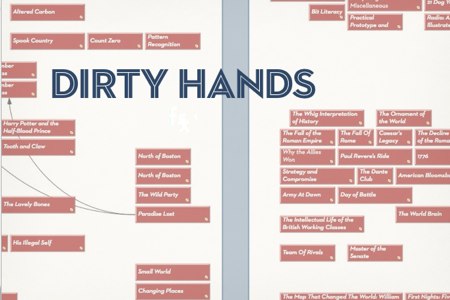Dirty Hands

One of my concluding points here at The Future Of Digital Studies was that, from time to time, the critic needs to plunge into the mess of the work. This means broad reading, if only to provide experience to inform the work at hand. (This is another reason I'm skeptical of Joe Tabbi’s intriguing proposal to rest new media criticism in the hands of large numbers of undergraduates and to rely on the wisdom of crowds: will undergraduates have sufficient breadth?) And it means enjoying the work, not merely examining it; I think at times we all forget why we do what we do.
But sometimes the critic also needs to pick up the construction tools and make things, even if those things aren't very good and won’t ever be seen by anyone else. I’m a very bad weekend painter, for example, but a few hours with a brush taught me things about what painters do (and what pigments want) that would be hard to learn from catalogs and monographs. Yes, that means constantly learning new tools and techniques. That, too, should be something we enjoy.
There's a very nice post today, by the way, from Brent Simmons about performance optimizations and Net News Wire. This sounds like the sort of topic a new media critic need not know, the dull and difficult engineering you hope to delegate to a student or a crew specialist. But Simmons very nicely walks through the sort of high-level thinking on which performance depends and shows why some things that might seem easy (like discarding stale news items) can turn out to require months of effort.